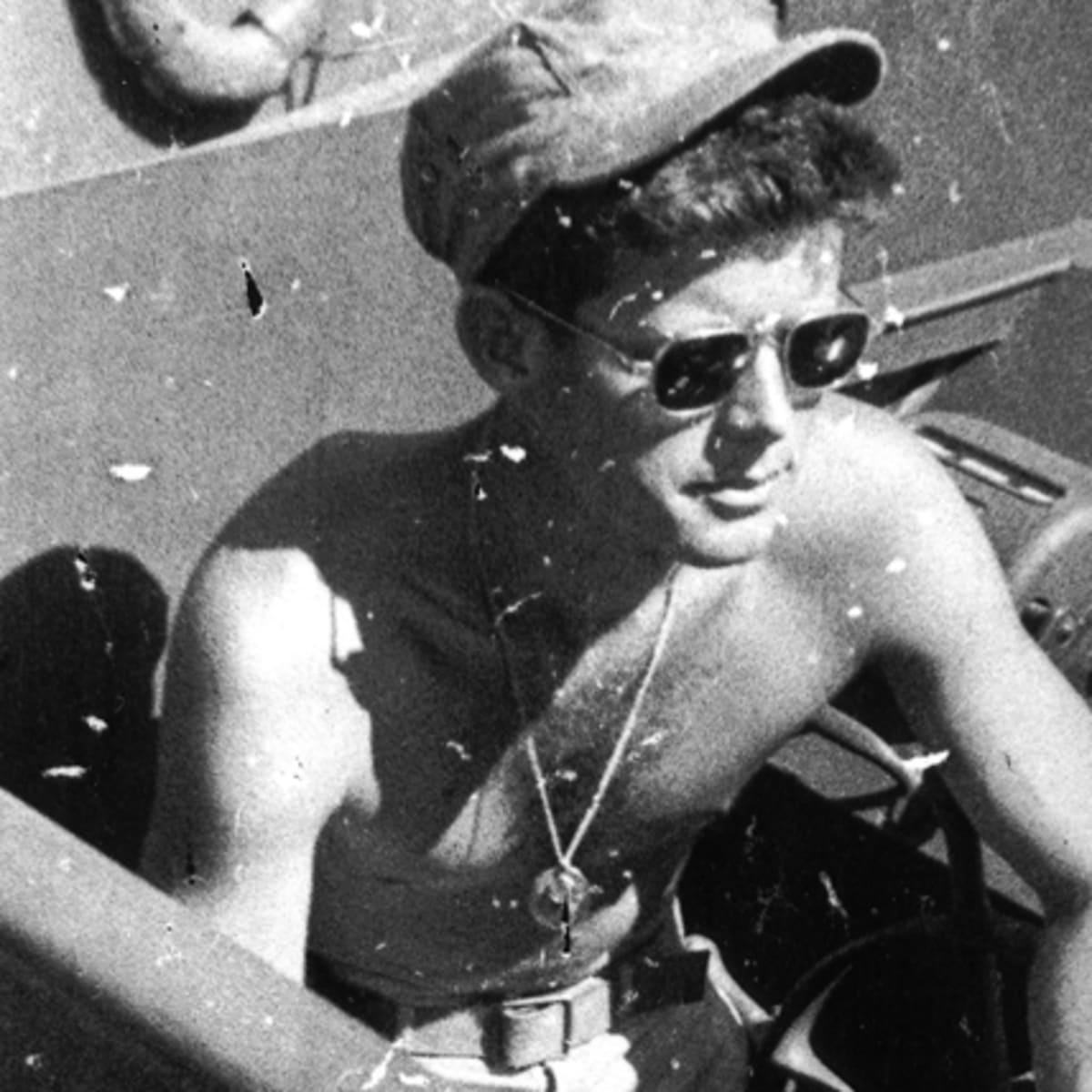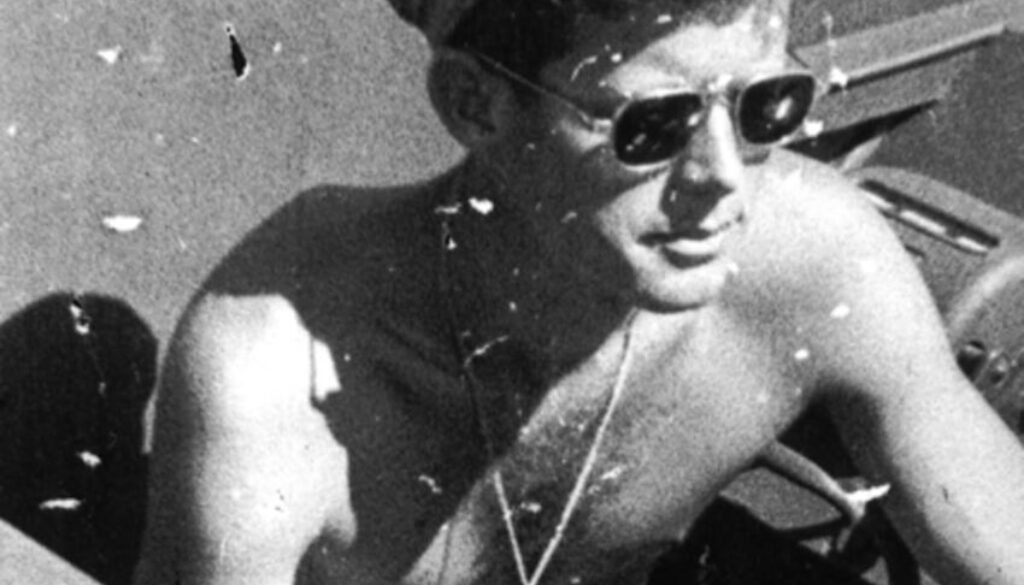A Tall, Slim, Polite Stranger
In March of 1943, Ensign James Reed was among a group of transient naval officers bound for combat assignments in the Pacific Theater aboard the USS Rochambeau, a French ocean liner converted to troop transport.
The officers were quartered three or four to a stateroom and spent their time discussing world affairs. Ensign Reed was discussing European politics with his roommate Ensign Paul Pennoyer, the grandson of J.P. Morgan. He was denouncing British Prime Minister Neville Chamberlain for his appeasement of Hitler in Munich. He argued that if Chamberlain had not compromised at Munich, Hitler would not have overrun Europe and so encouraged Japan to attack Pearl Harbor.
 At this point Reed and Pennoyer heard from a “tall, slim, polite stranger” with a “boyish shock of sandy hair” who suggested that Chamberlain went to Munich in a fatally weak position.
At this point Reed and Pennoyer heard from a “tall, slim, polite stranger” with a “boyish shock of sandy hair” who suggested that Chamberlain went to Munich in a fatally weak position.
For this, the stranger suggested, a great many people were to blame.
“Blame the timidity and apathy that had paralyzed the democracies in the 1930s. Blame the pathological dread of war and the pacifism that had softened Britain. Blame business and labor and political parties which had placed their own interests above rearmament.
“This was not a problem for Britain alone,” he said, “but for all democracies and capitalist societies.”
Ensign Reed stuck to his guns, but he realized he was up against a good debater.
The good debater was in fact the son of the US ambassador to Great Britain whose undergraduate thesis at Harvard was published under the title, “Why England Slept,” and became a bestseller.
My heartfelt thanks to Robert J. Donovan, author of “PT 109: John F. Kennedy in World War II.”
